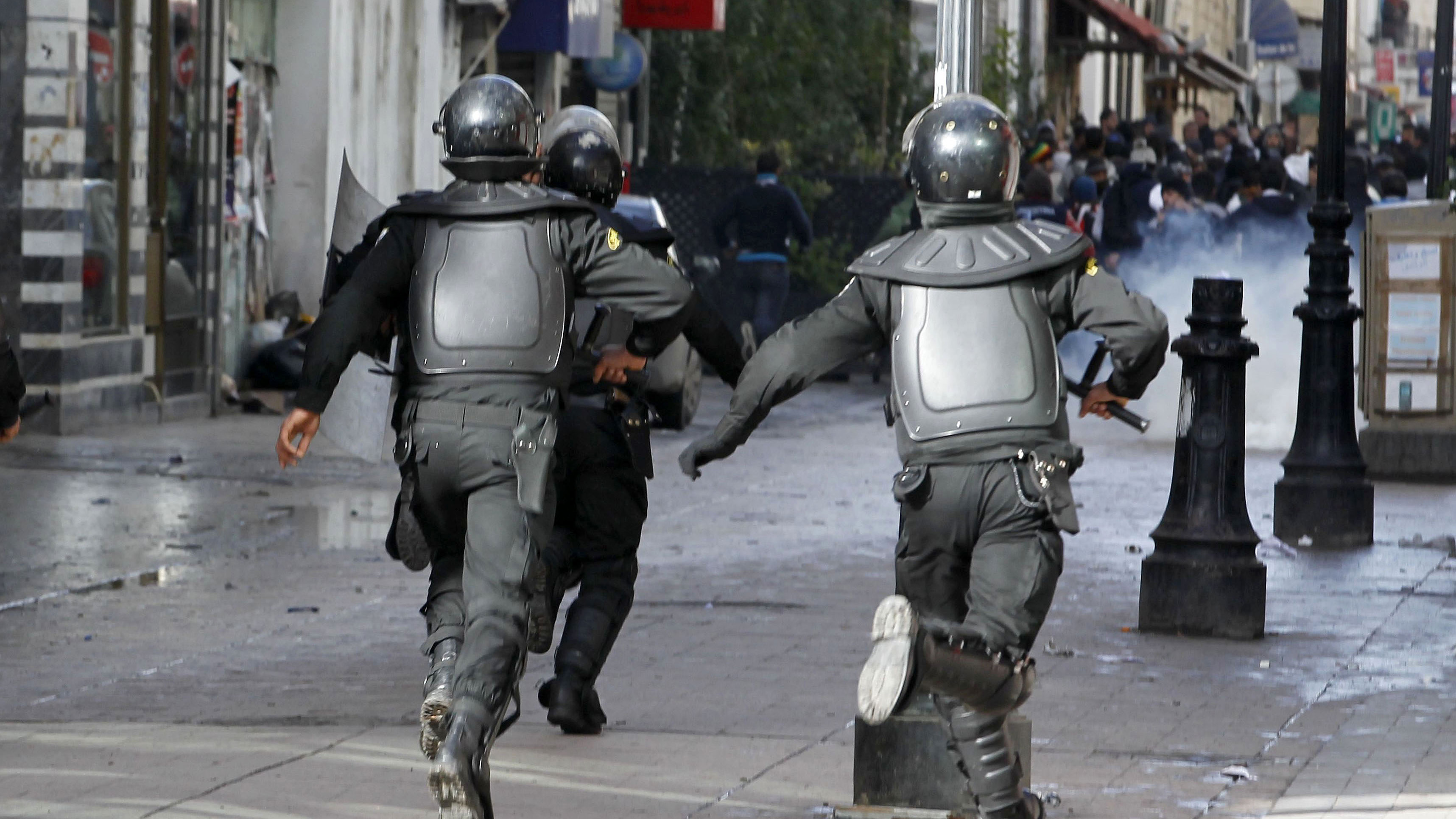Tunisia: unions call general strike as protests continue
Police in Tunis fire tear gas at protestors outside the Interior Ministry as unions call the first general strike since 1978 following the assassination of a secular opposition leader.
The murder on Wednesday of Chokri Belaid, a fierce critic of the government, provoked demonstrations that have continued into Thursday with clashes reported in the southern mining town of Gafsa, where Belaid’s Popular Front coalition has strong support.
The family of the murdered politician has blamed the Ennahda party – which leads the ruling government coalition – for Belaid’s death. He was shot three times through his car window as he left his home address by a man on a motorbike.
On Thursday his father said “He told me, ‘father, they are targeting me’. And his brother had to save him several times. Most of the time he wasn’t sleeping at his home.”
The decision of the General Union of Tunisian Workers to call a general strike on Friday is a clear expression of opposition to the government. The last general strike in 1978 led to riots across the country.
Political crisis
Members of the Ennahda party on Thursday said they would not comply with their own prime minister’s decision hours after Mr Belaid’s murder to replace the current government with a non-partisan technocratic government until elections could be held.
A senior Ennahda official said Prime Minister Hamdi Jebali had not sought approval from his party, suggesting the Islamist group was split over the move to replace the governing coalition.
“The prime minister did not ask the opinion of his party,” said Abdelhamid Jelassi, Ennahda’s vice-president. “We in Ennahda believe Tunisia needs a political government now. We will continue discussions with other parties about forming a coalition government.”
The main opposition parties have also rejected any move to a government of experts and demanded they be consulted before any new cabinet is formed.

Home of the Arab Spring
Tunisia had been seen as a model for the transition to democracy after its people ousted dictator Zine El Abidine Ben Ali and kicked off the Arab Spring, but political violence and allegations of government negligence had dimmed those hopes. The current political deadlock increases fears it may not be an exception to the turmoil in the region.
Sidi Bouzid: roots of the Tunisia revolution
In October 2011 Tunisia was the first of the countries which overthrew their former dictators during the arab spring to hold general elections.